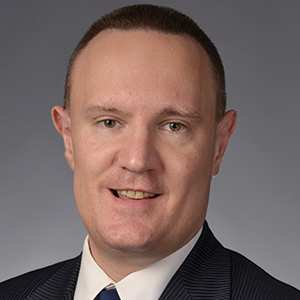Behavioral health care often receives less attention and investment than physical health, but that is a mistake, says Bradley E. Karlin, Ph.D., ABPP, MBA, VP and Executive Medical Director, Behavioral Health for Highmark Health, parent company of Highmark Blue Cross Blue Shield.
“There is unprecedented need and opportunity to innovate and transform behavioral health care, to elevate and prioritize it so it is an equal pillar to physical health,” says Karlin. “With clinical and technological advancements and unparalleled public attention to mental illness fueled by the pandemic, the industry is ripe for innovation. If we thoughtfully realize this long-awaited paradigm shift after years of stagnation, we can achieve the full promise of behavioral health care.”
Smart Business spoke with Karlin about the latest innovations in behavioral health, how to overcome barriers to care and the role employers play in keeping employees well.
What impact has the pandemic had on behavioral health care?
Rates of stress and specific behavioral health conditions are at all-time highs as a result of the pandemic, and the impact has been even greater among minorities, women, and children and adolescents.
While rates of behavioral health need are at their apex, there was a high level of unmet need prior to the pandemic. COVID raised the curtain to an existing crisis that was exacerbated, bringing greater attention and external interest to foster innovation in an area long in need of it. This includes technological advancements of a magnitude we haven’t seen in decades. This innovation has been largely fueled by forces outside the industry, including considerable interest from the venture capital community, which saw the field as ripe for innovation — from the broad dissemination and update of virtual behavioral health care to the proliferation of digital behavioral health applications. These developments allow for scaling behavioral health care to the masses and overcoming physical and psychological access barriers. In this way, the experience of the pandemic has, paradoxically, done much to advance the field. Also, the normalizing effect of the pandemic on stress and anxiety has led to greater acceptance of and a reduction in stigma associated with mental illness, although stigma remains a significant barrier.
How is technology changing the field of behavioral health?
Technological shifts have led to greater access to and acceptance of behavioral health treatment. For most individuals, virtual, or telebehavioral, health care is as effective as in-person treatment, yet its delivery has been limited. The pandemic has made it clear people are open to receiving behavioral health care via a computer. At Highmark, there was a more than 6,000 percent increase in telebehavioral health care delivery in 2020, a level that has persisted.
Digital apps have also exploded, with as many as 20,000 behavioral health-focused apps on the market. These present opportunities for low-intensity interventions or adjuncts to professional treatment, and for meeting behavioral health needs before the point of true clinical need. The best offer significant promise, especially when used at the right time for the right purpose.
What is the role of employers in employees’ behavioral health?
Depression is the leading cause of disability, and employers suffer a substantial financial impact from the resulting loss of productivity and absenteeism.
Employers should encourage a culture that supports and embraces behavioral health by providing education that promotes awareness of behavioral health, treatment and support. Normalize and model authenticity and positive behaviors. Show interest in employees’ well-being, and create policies consistent with promoting behavioral health. Offer appropriate benefits and provide support, navigation and information around how to seek treatment.
This is a time of great challenge and opportunity for behavioral health. The last few years have lit a much-needed spark to propel the field forward. It is incumbent on us as a society to recognize this pivotal moment and take actions to continue innovation and advancement to reduce high and enduring rates of unmet need. This is not a crisis that, with the right commitment and thoughtful approach, we cannot solve. ●
INSIGHTS Health Care is brought to you by Highmark Blue Cross Blue Shield.

